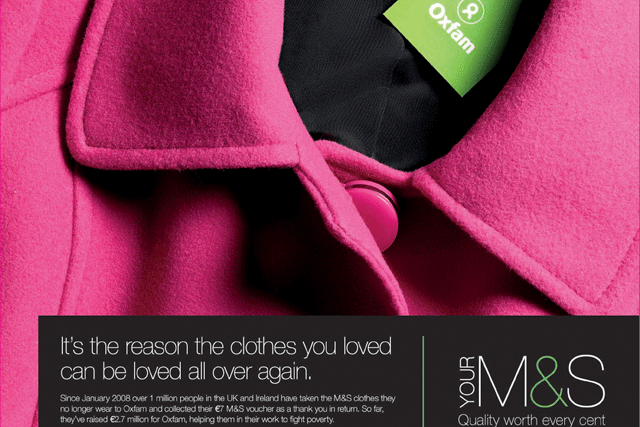
Green is out, while catchy marketing phrases such as 'reduced water consumption' are in. This clarification came last week as environment minister Lord McNally unveiled the latest Green Claims Guidance, declaring that it would help to 'restore public faith in environmental advertising'.
While some marketers will no doubt bristle at the implication of a loss of faith in their trade, the public has seemingly become fed-up with 'greenwash' - exaggerated claims about the environmental benefits of products.
However, the Advertising Standards Authority revealed that complaints about this type of advertising peaked in 2007. So, while over the past 12 months brands such as Renault, BMW and easyJet have been pulled up for their attempts to make green claims in ads, the volume of objections has dropped.
The recession, which led many brands to ditch green-themed marketing for price-driven activity, has had some bearing on this, but there is also evidence that marketers may have developed cold feet over its benefits. Evidence of this reticence is borne out by qualitative research conducted by strategy consultancy Brook Lyndhurst for the Department for Environment, Food and Rural Affairs (Defra), to examine responses to the new guidance. The study noted a 'prevailing mood of caution' among marketers.
Entering a minefield
Jon Fletcher, a director at Brook Lyndhurst, says some marketers referred to the 'green claims minefield' preventing companies 'saying things they would have liked to have communicated to consumers'.
Given that the government's stated aim is to get brands to make greater use of green claims in marketing, this presents a problem. Perhaps in recognition of the difficult circumstances in which brands operate, the new guidance offers more enticements and fewer discouragements to marketers.
Rowland Hill, corporate sustainability manager at Marks & Spencer, who has been involved in the drafting of the two previous Green Claims Guides, homes in on this point. 'My big criticism of the other two reports was that they had the balance wrong between laying down some rules to stop misleading claims and discouraging people. This version has a better balance.'
Sian Berry, co-director of lobby group We are Futureproof, which has proved a thorn in the side of car marketers by scrutinising their ads, is pleased the guidance is not over-complicated. 'If advertisers read it, they will clean up their acts a bit,' she says.
The latest guidance revolves around a three-step process of 'how to make a good environmental claim'. Without identifying the brands in question, the guide highlights genuine examples of good and bad practice.
Nonetheless, some of the good practice does not appear to be very 'marketing-friendly'. For instance, the guide advises against making claims such as 'now 50% more recycled content' if the original content was low. Instead, it recommends wording such as: 'We have increased the recycled content in our packaging by 25% - it was 40% and now it is 50%'. This is hardly snappy copywriting.
The guide also suggests that some popular terms such as 'green' and 'eco' should be avoided. Hill concedes that there is a 'tension' between making the language accessible and maintaining accuracy, but contends that such words can be used if they can be explained. 'We have "eco-factories" and "eco-stores". It's fine to use these phrases as long as they're substantiated,' he adds.
At the Advertising Association there is relief that the guidance did not usher in an extra layer of regulation and mandatory labelling. James Charlton, its public affairs executive, says: 'There is no extra burden on marketers but the extra guidance is there if they want it. Hopefully marketers can approach the area with more confidence.'
As long as the economic outlook remains gloomy, the guidance is unlikely to trigger a fresh wave of green advertising. For marketers planning to run these sort of campaigns, though, its introduction leaves little excuse for greenwash.
62% of UK respondents agreed with the statement 'I make a conscious effort to purchase green products'
Source: Landor's Green Brands
57% agreed that they are purchasing more green products than before
Source: Landor's Green Brands
26% of people were prepared to pay more for environmentally friendly products
Source: Brook Lyndhurst and Icaro Consulting, 2011
Green guidance: Dos and don'ts
Use words such as:
- Compostable
- Degradable
- Recyclable
- Reduced water consumption
Avoid words such as:
- Green
- Environmentally friendly
- Eco
- Better for the environment
Source: Green Claims Guidance
Make a 'good' environmental claim by:
- Ensuring the content is relevant and reflects a genuine benefit
- Presenting the claim clearly and accurately
- Checking that the claim can be substantiated
Source: Defra

